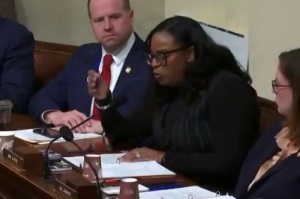To Leak or Not to Leak
Amid the avalanche of TV Christmas specials that hit our screens at this time of year, there's one little gem that always stands out. It's a simple, unpretentious cartoon that's several decades old now, but it still usually manages to earn great ratings and has been loved by many generations.
When I read about the recent leak of more than 250,000 State Department documents, my thoughts went back nearly forty years. In 1973, I went to prison for leaking government documents – in that case, an FBI file on Daniel Ellsberg, the man who himself leaked the Pentagon Papers to the New York Times.
Like today's leakers and those who have published the leak materials, I thought that my actions were justified by a higher, more important, purpose. The release of the Pentagon papers put lives at issue. So I thought I had to stop Ellsberg. Classical ethical dilemma. My actions in pursuit of a noble goal were wrong-and in the end hampered the government's ability to prosecute Ellsberg.
And now, for the third time this year, the website WikiLeaks has released hundreds of thousands of documents relating to American foreign policy. The first release concerned Afghanistan and the second were documents about Iraq.
The latest batch is an estimated 250,000 State Department cables. Most of the material is "medium-and high-level political reporting" by employees stationed all over the world. The leaks also include instructions from Washington to those employees.
While none of the material is top secret, it's still what Oxford historian Timothy Garton Ash calls a "diplomat's nightmare." For instance, in some of the cables, the Secretary of State instructs Foreign Service officers to engage in low-level spying.
Then there are the candid and embarrassing depictions of foreign leaders, including our allies, such as French President Nicolas Sarkozy and Italian Prime Minister Berlusconi.
Even more damaging, as I know from my personal experience in the Pentagon papers case, are the quotes by foreign leaders. Saudi King Abdullah, who urged the U.S. to take military action against Iran, for example. Saudi fear of Iran and their desire for us to attack Iran is hardly a revelation. The problem is that when foreign leaders speak to State Department officials, they expect their comments to remain, if not absolutely secret, then at least out of the media.
As David Brooks wrote in the New York Times this week, this kind of confidentiality is essential to the trust that makes fruitful diplomacy possible. Diplomacy is about more than power - it's also about relationships. The people we need to get things done in an increasingly dangerous world must be able to trust us which, at a minimum, means that private conversations stay private.
WikiLeaks' founder, Julian Assange, doesn't care about this. As Brooks notes, his entire life has been dedicated to undermining what he sees as "an unhealthy respect for authority." Some have called him an anarchist.
None of this would so much if major media were responsible. Assange may not respect authority, but papers like the Times and Britain's Guardian are authorities - they occupy a privileged and powerful place in their societies.
And this privilege and power carries responsibilities, one of which is to ask "what will happen if we publish this?" While the First Amendment gives the Times the right to publish the leaks, that doesn't mean they should.
Yet they did, driven by a sense of some "greater good." As I said, I know what that's like. But I was wrong then, and they are ethically wrong now.



























